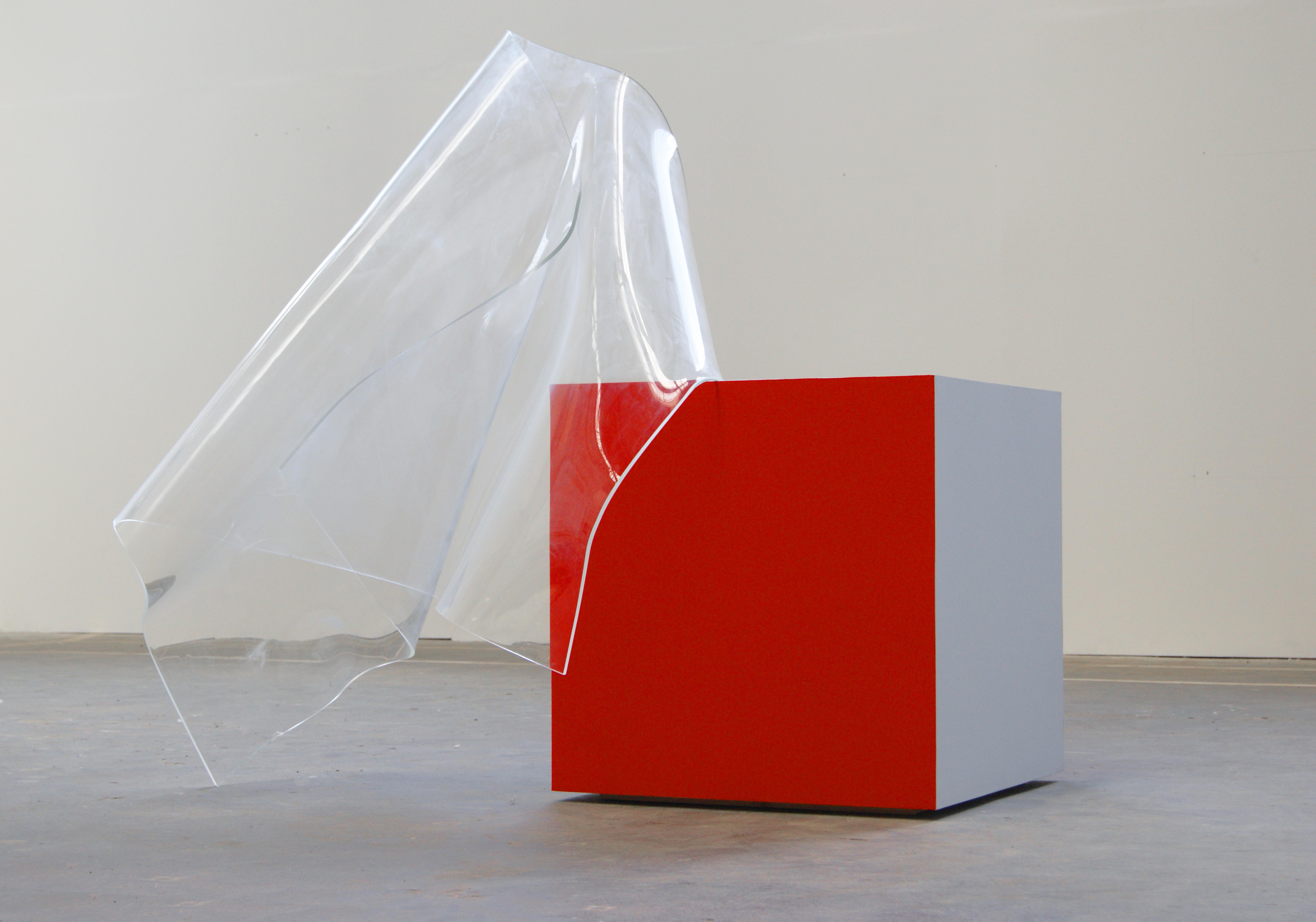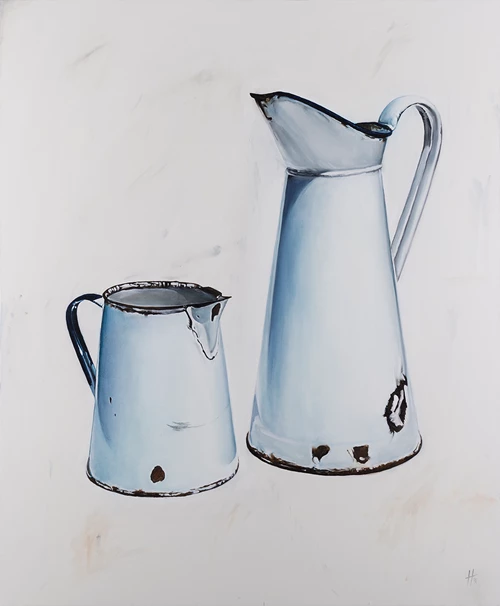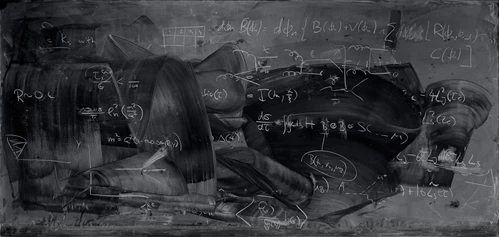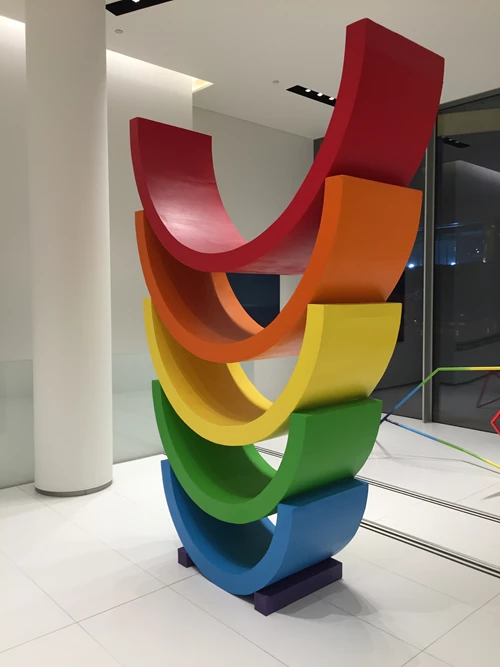Heat treated Perspex and vinyl-covered plinth
150 x 130 x 130 cm.
Created in 2012


 Add to wishlist
Add to wishlist
56. Natasha Peel
The World's Local Nomad
ESTIMATE
£1,500 - 2,500
Shipping estimate
Notes
The World's Local Nomad consists of a square plinth, the traditional sculptural support, which rests on the gallery floor; a sheet of transparent, folded Perspex, unconstrained by the plinth’s structure, which cascades and dances off to the side, one corner touching the floor.
Peel uses industrial ovens to heat sheets of Perspex until they become malleable, bending them in a way that retains a sense of the body’s traces. The plinth, meanwhile, is coated in coloured vinyl, its flattened aesthetic recalling not only the early twentieth century abstraction of Russian artists like Malevich and Rodchenko (Peel is herself Russian and lives and works in the UK), but also their appropriation in contemporary branding, in what Peel calls “the institutional fate of the avant-garde.”
Natasha explains her use of materials by saying, "I have had exposure to a factory environment from a young age because my dad is a director of a silicone rubber factory where they shape and extrude material from a raw form. This process fascinates me both physically and conceptually. I chose to explore it through sculptural means as this medium has a very concrete relationship to the human body. When melting a sheet of plastic it is inserted into a large industrial oven and heated to a high temperature until it becomes malleable, but is then formed using human force into shape rather than any machinery. In my work I reverse the relationship that the process of shaping a raw material has to machinery, for example I melt the finished product to allow it to sink into a biomorphic shape and freeze in this state. Theoretically, I am interested in the idea of “liquid modernity” as outlined by Zygmunt Bauman and the appropriation of the historical avant-garde in neo-liberal architecture and branding. The colours and utopian slogans of corporate branding bring to mind the reductive aesthetics of constructivism and suprematism, which have been liquefied by the force of global capitalism."
This work was exhibited in New Order: British Art Today by the Saatchi Gallery in 2013-2014.



